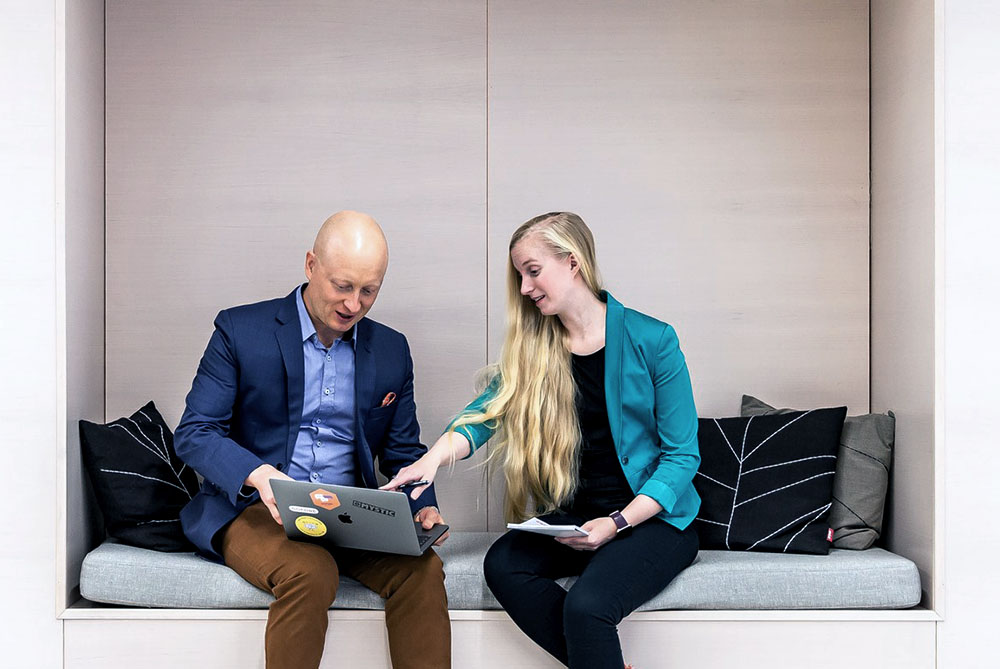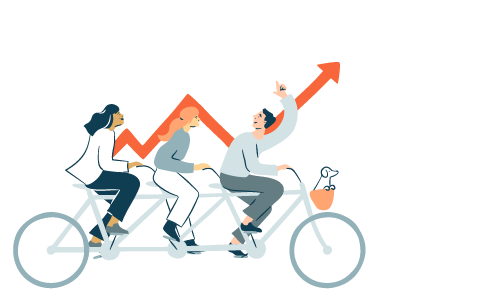It’s becoming clear that corona virus has changed the ways organizations function. In other words, how they work, their culture, and how they offer their services. Innovative ways of offering services emerge at high speed. Existing solutions are being used in various ways because there really is no time to plan the change. New ways are being tested quickly to see what works and what doesn’t.
In addition to current situation, the future of the society will face some big changes. For example, structure of the population and retirement will cause a lot of pressure on providing services. KEVA predicts that one third of municipalities’ employees will be retired in the next decade (https://www.keva.fi/uutiset-ja-artikkelit/joka-kolmas-kuntatyontekija-elakkeelle-kymmenen-vuoden-aikana/ ). This can cause lack of resources in service production, degradation of service quality, and reduction of services. This will affect health care companies as well. Quite similar to what health care is experiencing now. Corona virus is basically an exercise of what the future holds.
Working remotely is the new normal
At the moment, employees are working remotely in every single industry where it’s possible. Traditionally in our culture, work has been bound strongly to a certain place and time. In many organizations working remotely hasn’t been a part of everyday life and such a sudden change has been a shock. Challenges are of course partly technical, but the cultural change has been bigger issue. Some usual reasons why working remotely has not been common in organizations, are issues with trust (“do they really work at home”), appreciation of face-to-face working (“It’s much easier”), and culture (“We don’t usually work remotely”). Many still assume that people travel for meetings and workshops, and teams work physically in the same place. At its best, corona virus provides the needed boost for a change in attitude and culture. Negative attitude towards working remotely is truly being tested when there is no time for hesitation. When things get done, there is less justification for monitoring and controlling work. Demonstrating trust usually strengthens employee’s commitment to their work and to the organization. Organization’s ability to work remotely are growing tremendously at the moment. At Gofore, the change was easy as we usually work remotely quite a lot, we facilitate workshops virtually, and our teams are often geographically dispersed. It has been a pleasure to follow how fast our customers have adapted to the situation, and together we have sought the best (remote) ways of working.
At its best, working remotely increases labor productivity and frees time from commuting. The carbon footprint is reduced as travel decreases. Hopefully, these new habits remain also after the crisis. This way, we’ll have a positive effect on ways of working.
Overcrowded services
The situation forces organizations to a quick change in other ways as well. For grocery stores the demand for pick-up and delivery services has exploded, schools have moved to remote teaching, and health clubs have shifted to live web broadcasting. Payment methods lag behind and many of the entrepreneurs have to trust their customers’ goodwill to get paid for the service. Occasionally, the network capacity has failed. The future of many personal service companies is uncertain. Many public services have been simplified; what earlier needed a visit to the bureau, can now be handled through email. Health services have to be focused on treating the epidemic. All things that are not urgent, are postponed and dissolving these after the epidemic will take a long time. Wider use of digital services, automation and artificial intelligence could solve a lot of issues at the moment. Increased remote access would reduce people-to-people contact and allow location-independent business. It would also free time to social contact where it is especially needed. Most of all, we would be more prepared to situations such as this one we are facing right now. Pioneering companies have long been using different solutions for this that are worth exploring.
Positive outcome
Unexpected change has created innovative ideas and most of all, courage to test different, even unconventional options, and act fast. In many ways, we cannot go back to the way things were, but hopefully these new skills will remain in our ways of working. This way, we can change to more proactive and agile culture, and move towards technology enabled services that are independent of time and place. The inevitable change came unexpectedly as a consequence of a very serious situation, but hopefully it can help us become a faster adapting society.
Riikka Vilminko-Heikkinen
Head of Business, Recoding Society



